
Réponses de Robert Steuckers à la Table Ronde, “Quel avenir pour les peuples d’Europe?” au colloque du Château Coloma, 3 mars 2012
Q.: Quelles réactions positives voyez-vous aujourd’hui parmi les peuples européens?
RS: Des réactions positives? Je n’en vois pas beaucoup. J’en retiens deux, marginales sur le plan géographique mais significatives, et, mutatis mutandis, dignes d’être imitées: la mobilisation populaire en Islande et la colère de la foule en Grèce. Il y a d’abord la réaction islandaise, celle de ce petit peuple insulaire de 350.000 habitants, qui a inventé une véritable représentation démocratique dès l’aube de son histoire et forgé la première littérature moderne et profane de notre continent. Dans ce pays, les responsables de la crise de 2008, les infects banksters qui ont commis l’acte abject et méprisable de spéculer, sont traduits en justice, de même que Haarde, le Premier Ministre qui a couvert leurs vilénies, tandis que notre “Commission Dexia” patine et qu’on ne verra pas de sitôt l’incarcération, pourtant dûment méritée, de Dehaene à Lantin ou à Jamioulx. En Islande, ses homologues ès-abjection sont derrière les barreaux ou devant les juges. Parallèlement à cette saine réaction, les Islandais ont refusé de rembourser les banques étrangères qui ont participé à la ruine de leur pays et se sont donné une constitution nouvelle où la spéculation est expressément décrite comme un délit et où tous les transferts de souveraineté sont d’emblée condamnés ou, éventuellement, soumis à référendum. Les Islandais ont fait montre de volonté politique: ils ont prouvé qu’un retour au politique était possible dans un monde occidental où règne la dictature subtile du “tout-économique”. Résultat: l’Islande connaît un redéploiement économique assez spectaculaire.
Dans le reste de l’Europe, c’est l’apathie.
En Grèce, nous avons vu, ces jours-ci, des émeutes plus violentes encore que celles qui ont secoué Athènes l’an passé. Le peuple refuse le diktat des banques, du FMI et de l’eurocratie. La RTBF comme la VRT ont interrogé des quidams dans la rue; trois de ceux-ci ont lancé: “C’est bientôt votre tour!”. C’est prophétique et réaliste tout à la fois. En effet, la faiblesse, la lâcheté et la veulerie du monde politique, qui n’ose faire cueillir les escrocs et les banquiers par la police dès potron-minet, en filmant la scène à titre de petite mise au pilori, ne peuvent avoir qu’une seule conséquence à moyen terme: la faillite totale de l’Etat et l’hellénisation/paupérisation de notre société. Malgré cette colère de la rue à Athènes, les Grecs, contrairement aux Islandais, ont dû accepter, tout comme les Italiens d’ailleurs, un gouvernement d’économistes, de banquiers, de technocrates qui n’ont aucun atome crochu avec la population et, forcément, aucune légitimité démocratique. La dictature a donc fait sa réapparition en Europe, non plus une dictature acclamative ou issue des urnes comme il y en a eu dans l’histoire récente de notre continent, mais une dictature sans acclamations populaires, sans légitimité électorale, qui s’apprête à ruiner toutes les familles grecques et italiennes. Mais où sont les protestataires anti-dictateurs, comme ceux qui s’agitaient contre Franco ou contre les Colonels grecs dans les années 60 et 70?
En France, les grandes leçons du gaullisme des années 60 sont bien oubliées. Aucune réaction saine n’est à attendre du sarközisme néo-libéral. En Espagne, le mouvement des indignés est certes fort sympathique, mais quelles seront ses suites? L’Espagne, vient de nous dire Jean David, compte aujourd’hui quatre millions de chômeurs, avec un nouveau gouvernement libéral, qui fera la politique du FMI, et préconisera des mesures anti-populaires comme le font déjà anticipativement, chez nous, un Decroo (le fils de son papa) ou un Reynders (qui, dit-on, brigue un haut poste à la BNP à Paris).
Le mouvement des indignés espagnols montre que toute contestation juvénile est désormais noyée dans ce que le regretté Philippe Muray nommait le “festivisme”. On transforme une protestation, dont les enjeux sont pourtant vitaux pour l’ensemble de la population, en un happening de style Woodstock, ce qui n’inquiète ni les banksters ni leurs serviteurs néo-libéraux. Le danger du “gauchisme”, comme on disait naguère, ne vient nullement de sa nature “contestataire”, antagoniste à l’égard des pouvoirs en place, mais de ses propensions au “festivisme”, tel qu’il a été défini par Muray. La culture festiviste, envahissante, tablant sur les émotions ou sur les désirs, tue de fait les réflexes politiques, basés sur le sérieux de l’existence, sur l’agonalité (Ernst Jünger, Armin Mohler) et sur la prise en compte, pessimiste et prévoyante, des risques et du pire (Clément Rosset). Les exemples abondent pour signaler le glissement des idées en apparence révolutionnaires de mai 68 dans la farce festiviste: l’itinéraire d’un Daniel Cohn-Bendit le prouve amplement, ce pseudo-révolutionnaire du Nanterre de 1968, qui avait mêlé verbiage pseudo-marxiste et obsessions sexuelles, est aujourd’hui un allié du néo-libéral thatchérien Guy Verhofstadt quand il s’agit, dans l’enceinte du Parlement européen, de vitupérer tout réflexe politique naturel, émanant du peuple réel; ou toute tentative de l’un ou l’autre ponte en place, comme Sarközy, d’utiliser un réflexe populaire naturel pour mener une politique quelconque, par pur calcul politicien et qui, si elle était réellement traduite dans la réalité, serait efficace ou écornerait les intérêts du banksterisme.
Le philosophe néerlandais Luk van Middelaar parlait, pour la France, d’une culture philosophique du “politicide”, qui s’est développée parallèlement à l’idéologie étatique rigide que la république a toujours tenté de faire triompher dans son propre pré carré. De Sartre aux contestataires de Mai 68, en passant par Michel Foucault ou par le néo-nietzschéanisme exigeant la libération joyeuse et immédiate des “machines à désirer”, par le nouveau néokantisme post-marxisant qui découvrait subitement l’horreur du goulag chez ses anciens alliés soviétiques dans les années 70 ou par l’hypermoralisme hystérique des médias dominants ou par la promotion médiatique d’une “république compassionnelle”, les intellectuels français ont perpétré en permanence un “assassinat du politique” qui ne peut mener qu’à une impasse. Celle dans laquelle nous nous trouvons (Luk van Middelaar, Politicide – De moord op de politiek in de Franse filosofie, van Gennep, Amsterdam, 1999).
Il faut par conséquent une bataille métapolitique pour éradiquer les affres du festivisme et contrer les effets délétères de l’apathie en laquelle somnolent la plupart de nos concitoyens.
Q.: A quels dangers serait soumise une Europe redevenue “populiste” au sens positif du terme?
RS: Dresser la liste des dangers qui nous menacent risque d’être un exercice fort long. Si nous prenons la spéculation en cours contre l’euro, phénomène emblématique de l’absence de souveraineté et de vigueur politiques au sein de l’Europe eurocratique, nous constatons que toutes les spéculations hostiles à la monnaie commune européenne ont une origine outre-Atlantique, proviennent du secteur bancaire spéculatif américain. J’en conclus que la spéculation contre les Etats et les monnaies, dont l’Asie avait connu un précédent en 1997, est un mode (relativement) nouveau de guerre indirecte. Saddam Hussein voulait facturer son pétrole en euro. Ahmadinedjad a envisagé de le faire à son tour pour le pétrole et le gaz iraniens. Les puissances du BRIC (Russie, Chine, Inde, Brésil) emboîtent le pas. L’euro constituait donc le danger le plus grave pour les Etats-Unis à court et à moyen termes, car il était sur le point de détrôner le roi-dollar. L’Europe, puissance civile et pacifique (Zaki Laïdi), aurait, sans coup férir, damé le pion à l’hegemon Il fallait dès lors frapper cet instrument de souveraineté européenne à son “ventre mou” méditerranéen. Les pays méditerranéens, ceux du groupe PIGS (Portugal, Italie, Grèce, Espagne), sont effectivement les plus fragiles, les plus aisés à faire basculer pour entraîner un effet domino et affaiblir simultanément les pays économiquement plus forts de l’ancienne zone mark (oui, la Belgique est menacée, on le sait; l’Autriche a perdu un “A” et les Pays-Bas sont inquiets car ils connaissent leurs points faibles, leurs éventuels talons d’Achille). L’Allemagne est encore en mesure de résister vu ses accords gaziers avec la Russie et les marchés qu’elle développe à grande échelle en Chine. L’Allemagne demeure forte parce qu’elle est davantage liée aux puissances du groupe BRIC, parce qu’elle a misé subrepticement sur une carte eurasienne sans renier avec fracas son option atlantiste officielle. Les anciens chanceliers Schmidt et Schröder se sont hissés à la position “catéchonique” de garants de cet axe énergétique Berlin/Moscou, avatar actuel des accords Rathenau/Tchitchérine, signés à Rapallo en 1922.
Pour revenir à la Grèce, aujourd’hui ruinée, on évoque fort souvent l’insouciance du personnel politique grec, qui a pratiqué une politique démagogique où l’Etat-Providence était particulièrement généreux et peu regardant (plusieurs centaines d’aveugles disposent de leur permis de conduire...) ou le gouffre financier qu’a constitué l’organisation des jeux olympiques de 2004 mais on omet curieusement de mentionner le coût exorbitant qu’ont entraîné les incendies de forêts et de garrigues que le pays a subi deux années de suite. Le feu a ravagé les campagnes et s’est avancé jusque dans les banlieues des villes dans des proportions hors du commun. De même, la Russie de Poutine, récalcitrante face aux diktats du “nouvel ordre mondial”, a subi sur son territoire des incendies de grande envergure, inédits dans l’histoire.
Ces incendies sont-ils dû à des hasards naturels, un peu vite mis sur le compte de l’hypothétique “réchauffement climatique”? Ou bien sont-ils les effets d’une nouvelle forme de “guerre indirecte”? La question peut être posée.
De même, on parle, avec le projet HAARP, de l’éventualité de provoquer artificiellement des catastrophes sismiques ou autres. Le tsunami qui a réduit à néant le nucléaire japonais l’an passé (et conduira à court terme au démantèlement total du secteur nucléaire de l’Empire du Soleil Levant) ou les tempêtes extrêmement violentes que la France a subies il y a quelques années, immédiatement après l’enthousiasme soulevé par la possibilité d’un Axe Paris/Berlin/Moscou, sont-ils des hasards ou non? Telles sont des questions à étudier avec toute l’attention voulue, comme le fait “Kopp-Verlag” en Allemagne.
L’arme de la grève sauvage a été utilisée contre Chirac en 1995, après des essais nucléaires à Mururoa. On sait que certains syndicats français, noyautés par des éléments trotskistes ou lambertistes, pendants économico-sociaux des “nouveaux philosophes” agissant dans l’espace médiatique, sont soutenus par la CIA (ou l’ont été par l’ex-OSS quand il a fallu mettre les anciens alliés communistes échec et mat). La France vit en permanence sous l’épée de Damoclès d’une paralysie totale, qui pourrait être due, par exemple, à une grève des routiers, qui bloquerait toutes les routes de l’Hexagone et toutes les voies d’accès à celui-ci. Dans de telles conditions, pas besoin de révolution orange en France...
Reste effectivement le danger des “révolutions colorées”, à l’instar de celle qui a réussi en Géorgie en 2003 et a porté Sakashvili au pouvoir. L’instrument des révolutions colorées est désormais connu et ne fonctionne plus de manière optimale, en dépit d’un personnel très bien écolé, recruté au départ du mouvement serbe OTPOR. En Ukraine, les conséquences de la “révolution orange” de 2004, soit un rapprochement du pays avec les structures atlantistes et eurocratiques, sont annulées sous la pression du réel géographique. L’Ukraine est liée aux espaces déterminés par les grands fleuves (Dniestr, Dniepr, Don) et par la Mer Noire. Elle est aussi liée territorialement à l’espace russe du Nord. La dernière tentative de “révolution orange” en Russie cet hiver, pour faire tomber Poutine, s’est soldée par un échec: les sondages créditent le Premier Ministre russe de 66% des intentions de vote! Pire pour les “occidentistes”, la majorité absolue des voix va non seulement vers le mouvement de Poutine mais aussi, au-delà des deux tiers de votes que les sondages lui attribuent, à des formations politiques d’inspiration communiste ou nationale (Ziouganov et Jirinovski) et non pas vers les tenants d’une ré-occidentalisation de la Russie, avec son cortège de “Gay-Prides” festivistes, d’oligarques et de politiciens véreux et falots.
Les “printemps arabes”, autre manière de mobiliser les foules pour libérer les marchés potentiels —que constituent les Etats arabo-musulmans— des structures étatiques traditionnelles et des corruptions claniques, ont fonctionné en Tunisie et, partiellement seulement, en Egypte. En Syrie, cela n’a pas marché et on prépare au pays d’El-Assad un avenir libyen...
Les pays européens sont finalement à ranger parmi les Etats de faible personnalité politique. Outre la spéculation contre l’euro, quel instrument garde-t-on au placard pour la faire fléchir si jamais il lui prenait de branler dans le manche? L’ambassadeur américain Jeremy Rivkin a été trop bavard: il a révélé la nature de l’instrument dont on ferait usage pour déstabiliser les sociétés des Européens de l’Ouest, si ceux-ci devenaient trop récalcitrants. On leur balancerait les déclassés des banlieues dans les pattes. Jeremy Rivkin évoque, sans circonlocutions inutiles, la possibilité de mobiliser les masses immigrées des banlieues pour faire tomber ou pour désarçonner un gouvernement rebelle, surtout en France. Sarkozy doit savoir mieux que personne qu’il a été porté au pouvoir suite aux émeutes des banlieues françaises de novembre 2005. Elles avaient servi à éliminer Chirac, adepte de l’Axe Paris/Berlin/Moscou. Elles pourraient tout aussi bien servir à le faire tomber, lui aussi, s’il ne reste pas sagement dans le sillage de l’hegemon américain et fidèle à son alliance privilégiée avec la Grande-Bretagne de Cameron. Faye avait prédit, à la grande fureur du président français actuel, que la France ne pourrait pas se payer indéfiniment des émeutes de banlieues, surtout si elles éclataient simultanément dans plusieurs grandes agglomérations de l’Hexagone, non plus seulement dans le fameux département n°93, près de Paris, mais aussi à Lyon, Marseille et Lille. Les réseaux salafistes, comme les réseaux lambertistes, sont prêts à faire le jeu de l’hegemon, au détriment des Etats-hôtes, a fortiori si l’Arabie Saoudite, matrice financière wahhabite des mouvements salafistes, est une alliée inconditionnelle de Washington.
La méfiance à l’égard de certains réseaux salafistes ne relève donc pas du “racisme” ou de l’“islamophobie”, comme le vocifèrent les médias aux ordres ou le pensent certains magistrats croupions, dont la corporation est dénoncée comme inculte, à l’instar de tous les juristes modernes sans culture générale, par François Ost, ancien recteur des Facultés universitaires Saint-Louis de Bruxelles. Cette méfiance à l’égard des salafistes relève d’une simple analyse du terrain politique, où il faut établir l’inventaire des éléments en place: quelles sont les forces dangereuses qui pourraient, dans un avenir prévisible, disloquer la machine étatique, dont je suis citoyen, et plonger la société, en laquelle je vis, dans le chaos? Quelles sont les forces en présence dans ma société qui pourraient servir de levier, à toutes mauvaises fins utiles, à l’hegemon pour la déstabiliser ou l’affaiblir?
Q.: Quels sont les ennemis intérieurs et extérieurs des peuples européens dans le contexte actuel?
RS: Commençons par les ennemis extérieurs, les ennemis intérieurs n’étant que des instruments à leur service. L’ennemi extérieur est bien entendu l’hegemon qui refuse de nous élever à son rang, comme on le ferait en toute bonne logique avec des alliés fidèles à la façon romaine, et nous plonge en permanence dans l’assujetissement, brisant chaque fois, à l’aide d’instruments subtils propres aux nouvelles formes de guerre indirecte, tout nouvel élan économique ou politique de notre Europe. Cet hegemon est une thalassocratie, une puissance essentiellement maritime, une puissance qui domine les “res nullius” que sont les océans et l’espace circumterrestre, tout en imposant des règles internationales fluctuantes, chaque fois interprétées en sa faveur. Je veux bien évidemment parler des Etats-Unis d’Amérique, tels que les a décrits une figure comme Carl Schmitt. Ce n’est pas la place ici de rappeler les réflexions profondes et pertinentes que Carl Schmitt a émises sur la fabrication arbitraire et perfide de règles juridiques internationales floues et boiteuses car tributaires de l’esprit “wilsonien”, destinées à faire avancer les pions de l’impérialisme américain dans le monde ou sur le processus délétère de fluidification et de liquéfaction des certitudes et des traditions diplomatiques que ces règles perfides ont fait éclore. Plus accessibles me semblent les directives émises par un stratégiste américain, Nicholas J. Spykman, dans un bref vademecum en annexe de son ouvrage de 1942, America’s Strategy in World Politics.
Pour lui, l’Europe de son temps possède dix atouts qui la rendent supérieure aux Etats-Unis. Ces dix atouts, que j’énonce par ailleurs (cf. “Panorama théorique de la géopolitique”, in Orientations n°12, été 1990/hiver 1990-91), lui avaient été inspirés par un géopolitologue allemand de l’école de Haushofer, une certain Robert Strauss-Hupé, émigré aux Etats-Unis après la prise du pouvoir par les nationaux-socialistes parce qu’il avait quelque ascendance juive. Les atouts que doit avoir une superpuissance de l’acabit des Etats-Unis pour Spykman ou les atouts que possédait l’Europe sous hegemon germanique selon Strauss-Hupé sont notamment, je n’en cite ici que trois, l’excellence d’un système scolaire et universitaire, la cohésion ethnique et une économie plus ou moins autarcique (ou semi-autarcique auto-centrée comme le préciseront plus tard les Français François Perroux et André Grjébine) qui permet l’émergence et la consolidation d’un bloc économique concurrent des Etats-Unis et capable de conquérir et de conserver longtemps des marchés en Asie, en Afrique et en Amérique latine.
Pour démolir l’enseignement, il y a eu mai 68, avec son cortège de nouvelles pédagogies abracadabrantes et son laxisme implicite, suivi d’une offensive, classée à “droite”, du néo-libéralisme qui a imposé des schémas pédagogiques visant l’acquisition facile de savoirs purement utilitaires au détriment des humanités traditionnelles, totalement battues en brèche. Une fois de plus, ici, le festivisme gauchiste à la sauce 68 n’a jamais cessé de marcher de concert avec le néo-libéralisme utilitariste pour ruiner les acquis de notre civilisation et que leur antagonisme fictif, souvent médiatisé pour faire croire à des alternances démocratiques, ne servait qu’à leurrer les masses. Pour briser la cohésion ethnique, on a d’abord coupé l’Europe occidentale de ses réservoirs habituels de main-d’oeuvre supplétive en Europe orientale, on a ensuite freiné tous les processus d’intégration et d’assimilation avec l’aide des réseaux wahhabite/salafiste inféodés à l’allié saoudien (qui promettait aussi un pétrole bon marché à condition que l’Europe s’ouvre à toutes les immigrations musulmanes); on s’apprête, avec l’ambassadeur Rivkin, à inciter les nouveaux banlieusards déboussolés, toutes couleurs et toutes confessions confondues, à bloquer le fonctionnement total de l’Etat et de la société en générant des troubles civils dans les grandes agglomérations; en Allemagne, Erdogan et Davutoglu menacent de faire jouer, au détriment de l’Etat allemand, les “sociétés parallèles” turques, étant bien entendu que le néo-libéralisme a eu pour effet de favoriser, de “booster”, toutes les ‘économies diasporiques”, dont les réseaux turcs, axés, dans un premier temps, sur le trafic de l’héroïne; enfin, la pratique permanente du “politicide”, surtout en France, ne permet aucune restauration du “politique”, au sens où l’entendait le regretté Julien Freund. Sans restauration du politique, nous risquons le déclin total et définitif.
On s’aperçoit clairement que l’hegemon, qui entend freiner tous nos élans, aligne tout un éventail d’alliés circonstantiels, qui ne sont en aucun cas l’ennemi principal mais bien plutôt les instruments de celui-ci. La rébellion turque, mise en exergue par les médias depuis le “clash” entre Erdogan et son homologue israélien à Davos et depuis l’affaire de la flotille humanitaire turque amenant des médicaments aux Palestiniens de Gaza, est un “show”, destiné à gruger les masses arabo-musulmanes. Outre cette mise en scène, la politique turque n’a guère changé à l’égard de son environnement, en dépit du discours néo-ottoman de Davutoglu qui évoque les notions de “zéro problème avec les voisins” et de solidarité musulmane. En Syrie, depuis août 2011, la Turquie est bel et bien alignée sur l’hegemon américain: Erdogan, Gül et Davutoglu ont tenté de faire fléchir El-Assad, en lui suggérant de prendre dans son gouvernement des ministres appartenant aux “Frères Musulmans” et de ne plus favoriser les Alaouites, adeptes d’un islam à fortes connotations chiites, et de renoncer à la laïcité de l’Etat, préconisée par l’idéologie baathiste qui refuse toute discrimination entre musulmans (sunnites, chiites, alaouites, druzes, etc.) ou à l’égard des chrétiens arabes/araméens. Le pari baathiste sur la laïcité de l’Etat syrien, sans violence institutionnelle aucune à l’égard des communautés réelles composant la population syrienne, est plus souple que ne le fut le kémalisme turc, avant son éviction par l’AKP d’Erdogan. Aujourd’hui, c’est par la Turquie (par l’Irak et la Jordanie) que transitent les armes pour les opposants syriens et pour les mercenaires “afghans” ou “libyens” qui affrontent l’armée loyaliste syrienne. Par railleurs, la géopolitique implicite de la Turquie n’est pas assimilable à une géopolitique européenne cohérente: les “directions” qu’entend prendre la géopolitique turque sous-jacente ne vont pas dans le même sens qu’une bonne géopolitique européenne qui serait enfin devenue générale et cohérente: la Turquie, par exemple, entend reprendre indirectement pied dans les Balkans, alors que ceux-ci devraient constituer exclusivement un tremplin européen vers la Méditerranée orientale et le Canal de Suez. Enfin, l’actuel territoire turc constitue une zone de transit pour une immigration proche-orientale, moyen-orientale et asiatique tentant de s’introduire dans l’espace Schengen. La Turquie, en dépit des subsides considérables qu’elle reçoit de l’Europe eurocratique, ne garde pas ses frontières et laisse passer vers l’Europe des centaines de milliers de futurs clandestins. La police et la flotte grecques sont débordées. Les finances de l’Etat grec ont été déstabilisées par ce combat à la Sisyphe, tout comme par les incendies de grande ampleur que la Grèce a subi ces derniers étés, et non pas tant, comme veulent le faire accroire les médias véhiculant le discours néo-libéral dominant, par la mauvaise gestion des budgets olympiques de 2004 et par quelques milliers de pauvres grecs véreux et madrés qui escroquaient leur système national de sécurité sociale. Pour endiguer ce gigantesque flot de réfugiés, pire que ceux de Lampedusa aux portes de la Sicile et de Fuerteventura dans les Canaries, l’eurocratie ne débloque qu’un très petit budget pour l’envoi de 200 malheureux gendarmes qui doivent surveiller une frontière qui va des rives pontiques de la Thrace à toutes les îles de l’Egée jusqu’à Rhodes et à toutes les parties de l’archipel du Dodécannèse. L’agence Frontex, chargée en théorie de verrouiller les frontières extérieures de l’espace Schengen pour éviter tous les déséquilibres qu’apporterait une immigration débridée, ne reçoit en réalité aucun appui sérieux et se révèle une “coquille vide”.
On sait que toutes les menées salafistes ou wahhabites sont en dernière instance téléguidées par le tandem américano-saoudien et s’avèrent idéales pour perpétrer des opérations de guerre indirecte, dites de “low intensity warfare”, ou des actions “fausse-bannière” (false flag operations). On tue un Pim Fortuyn non pas tant parce qu’il serait “islamophobe” mais parce qu’il souhaitait supprimer la participation néerlandaise aux opérations en Afghanistan. On recrute un tueur dans la diaspora marocaine de Molenbeek pour éliminer le Commandant Massoud afin que ce combattant efficace ne prenne pas le pouvoir suite à la chute des talibans, programmée par le Pentagone. On envoie un Jordanien fondamentaliste pour prendre la direction de la rébellion tchétchène sur le tracé d’un oléoduc qui pourrait amener le brut russe et kazakh en Mer Noire, etc. La Russie, fournisseur principal d’hydrocarbures à l’Europe, est fragilisée dans la Caucase du Nord par les fondamentalistes tchétchènes et daghestanais mais aussi et surtout, comme le signale l’observateur allemand Peter Scholl-Latour, par une intervention wahhabite potentielle (et donc indirectement américaine) dans deux républiques musulmanes de la Fédération de Russie, le Tatarstan et le Baschkirtostan. Si ces deux républiques basculent dans le désordre civil ou si des fondamentalistes y arrivent au pouvoir, le territoire de la Fédération de Russie serait littéralement coupé en deux à hauteur de l’Oural, extrême nord excepté, soit au-delà de la limite méridionale de la zone des toundras. L’Europe serait réduite à ce qu’elle était au début du 16ième siècle, avant le déferlement des troupes d’Ivan le Terrible et de Fiodor I au 16ème siècle qui, parties de la région de Moscou, conquièrent tout le cours de la Volga et déboulent à Astrakhan en 1556. Kazan, la capitale tatar, était tombée en 1552. Peter Scholl-Latour rappelle que les Tatars ne sont que fort rarement séduits par le “wahhabisme” saoudien ou par l’idéologie égyptienne des Frères Musulmans d’Hassan al-Banna et de Sayyid Qutb et leur préfèrent une sorte d’islam modernisé, compatible avec la modernité européenne et russe, que l’on appelle le “yadidisme” ou la “voie tatar”, dont le penseur est actuellement Rafael Chakimov. Ce dernier s’insurge contre les volontés wahhabites de vouloir à tout prix imiter les moeurs et coutumes de l’Arabie des 7ème et 8ème siécles. Les adeptes de Chakimov sont peut-être majoritaires aujourd’hui au Tatarstan mais ils avaient dû prendre en compte les menées de la mosquée “Yoldiz Madrassa”, dans la ville industrielle de Naberechnié Khelny, animée par des enseignants tous issus du monde arabe. Ils ont été expulsés parce que certains de leurs étudiants avaient rejoint les rebelles tchétchènes. L’avenir est ouvert sur les rives de la Kama, affluent de la Volga qui prend ses sources loin au nord, à la limite de la toundra circumarctique. L’hegemon mondial et ses alliés saoudiens pourraient y semer le trouble en luttant contre le “yadidisme” tatar ou en réactivant une forme ou une autre de pantouranisme (pour connaître la question dans tous ses détails et en dehors de toute polémique politique, cf. L’islam de Russie – Conscience communautaire et autonomie politique chez les Tatars de la Volga et de l’Oural depuis le XVIIIe siècle, sous la direction de Stéphane A. Dudoignon, Dämir Is’haqov et Räfyq Möhämmätshin, éd. Maisonneuve & Larose, Paris, 1997; Peter Scholl-Latour, Russland im Zangengriff – Putins Imperium zwischen Nato, China und Islam, Propyläen Verlag, Berlin, 2006).
Passons maintenant aux ennemis intérieurs: j’en citerai trois. D’abord le système bancaire, totalement parasitaire et instaurateur d’une véritable ploutocratie (mot que réhabilitent à Paris Pierre-André Taguieff et Jean-François Kahn), qui n’a plus rien, mais alors plus rien de démocratique. A ce système bancaire s’ajoute d’autres instances parasitaires comme les chaînes de supermarchés, qui spéculent sur les denrées alimentaires et sont responsables de leur cherté, plus élevée que dans les pays voisins; pour bon nombre de produits de première nécessité, les prix varient du simple au double entre notre pays et l’Allemagne, par exemple. Le secteur énergétique, entièrement aux mains de la France, nous oblige à payer un gaz et une électricité à des prix incroyablement exagérés: chaque ménage hexagonale ne paie que 62% de notre facture énergétique, ou, autres chiffres, si le ménage hexagonal paie 100%, nous payons 160,97%!! Les déséquilibres provoqués par le gigantisme de ces structures privées, semi-privées ou para-étatiques doivent être impérativement corrigés par des moyens adéquats, si nous ne voulons pas voir s’effondrer définitivement les structures les plus intimes de nos sociétés. Le second ennemi est l’idéologie néo-libérale et ses relais, dont le premier animateur fut, rappellons-le, l’ancien premier ministre Guy Verhofstadt, qui dirigea le gouvernement “arc-en-ciel”, mélange de néo-libéralisme et de gauchisme festiviste. Cette idéologie est un ennemi intérieur dangereux dans la mesure où elle étouffe, en se parant d’un masque “boniste”, toutes les possibilités d’une révolte constructive. Ensuite, pour épauler la ploutocratie et le néo-libéralisme, nous avons, troisième ennemi, les diasporas manipulables. Elles sont telles parce qu’on les déclare telles, par la bouche de l’ambassadeur Rivkin ou par la voix du tandem Erdogan/Davutoglu.
L’objectif est donc de juguler le développement exponentiel du secteur parasitaire/ploutocratique en lui imposant des limites et des contrôles, en le soumettant à une fiscalité juste (le “mulcto” ou “multo” de la République romaine) et à des directives à soubassement éthique, qu’il ne pourrait transgresser sans commettre automatiquement un délit punissable. Le néo-libéralisme et tout le cortège de ses dérivés doit être perçu comme une idéologie “politicide” et dès lors dangereuse pour la sûreté de l’Etat et de l’Europe tout entière. Quant aux diasporas manipulables, elles sont, surtout depuis les menaces d’Erdogan et de Davutoglu, des “cinquièmes colonnes” passibles des juridictions d’exception. On ne sauvera pas notre civilisation sans des mesures drastiques.
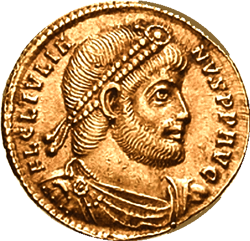



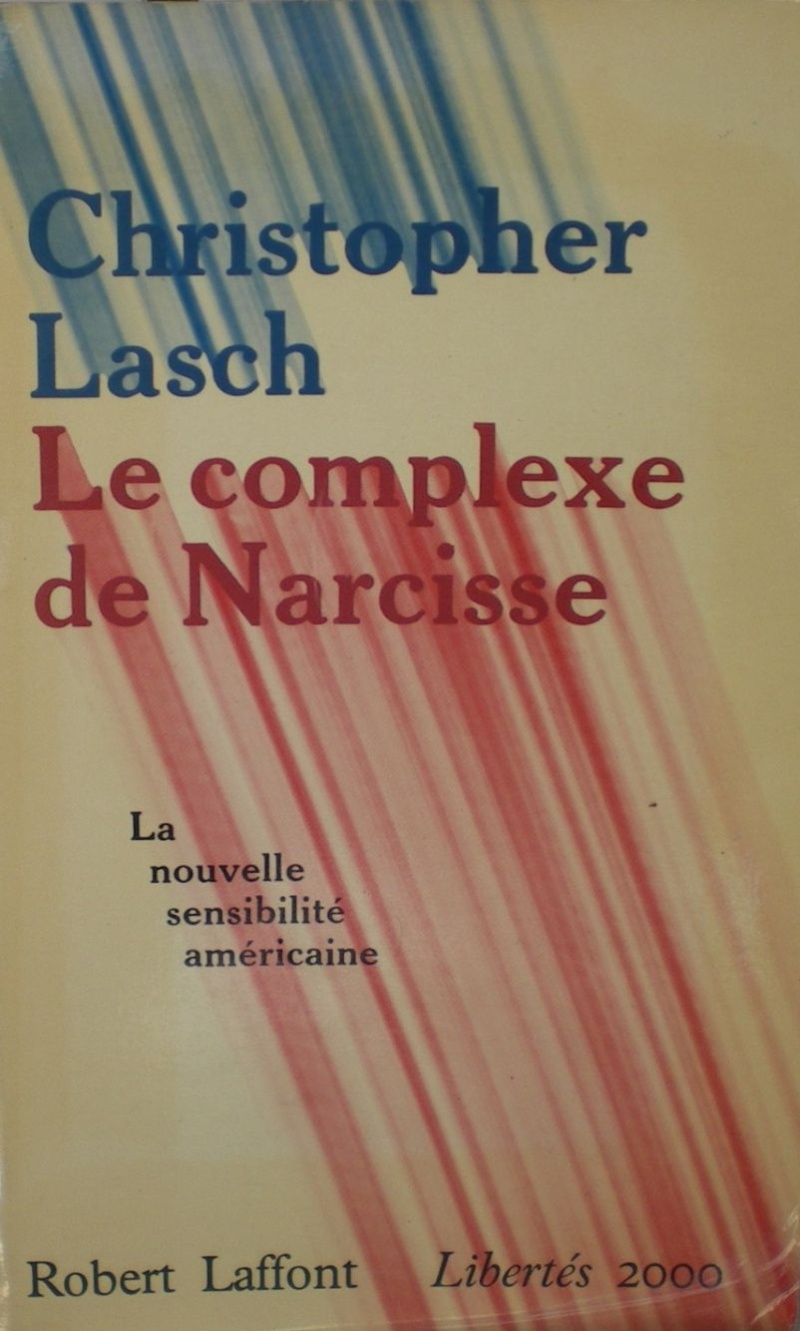

 del.icio.us
del.icio.us
 Digg
Digg
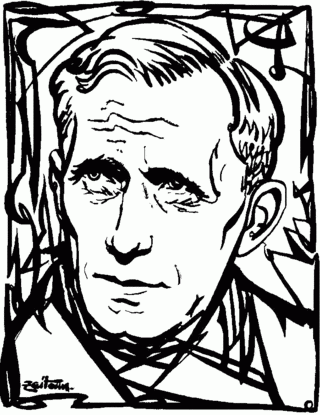 Das Wort „Endzeiten“ erinnert an die biblischen Voraussagen über einen linearen Zeitverlauf, der in ein apokalyptisches Ende der Welt einmünden soll. Diese Idee ist typisch für den Offenbarungsmenschen, dessen Denken aus semitischen Quellen gespeist wird: „Dann sah ich einen neuen Himmel und eine neue Erde. Der erste Himmel und die erste Erde waren verschwunden, und das Meer war nicht mehr da. Ich sah, wie die Heilige Stadt, das neue Jerusalem, von Gott aus dem Himmel herabkam“
Das Wort „Endzeiten“ erinnert an die biblischen Voraussagen über einen linearen Zeitverlauf, der in ein apokalyptisches Ende der Welt einmünden soll. Diese Idee ist typisch für den Offenbarungsmenschen, dessen Denken aus semitischen Quellen gespeist wird: „Dann sah ich einen neuen Himmel und eine neue Erde. Der erste Himmel und die erste Erde waren verschwunden, und das Meer war nicht mehr da. Ich sah, wie die Heilige Stadt, das neue Jerusalem, von Gott aus dem Himmel herabkam“ 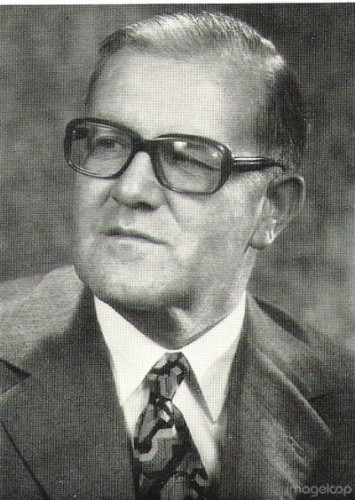


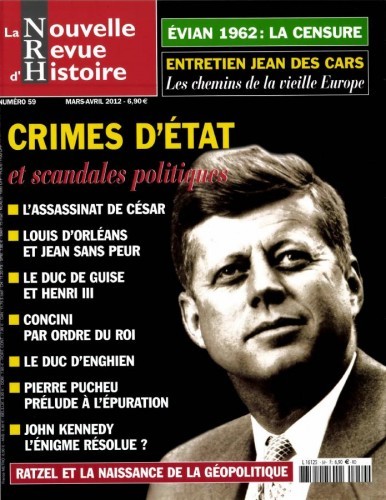
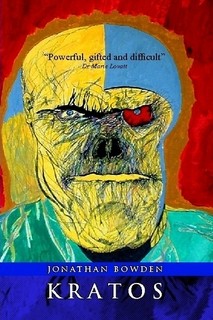


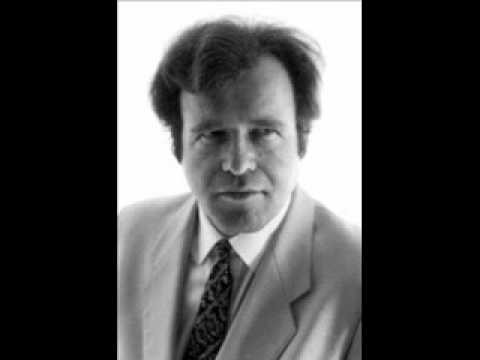


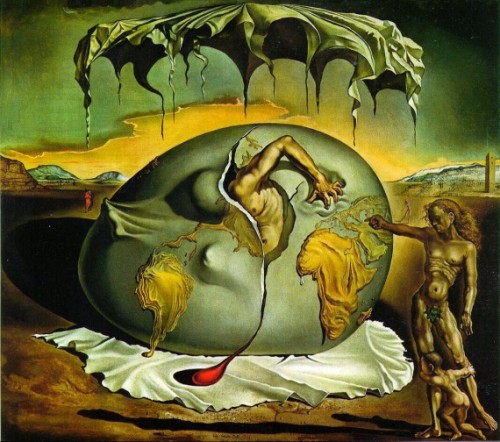
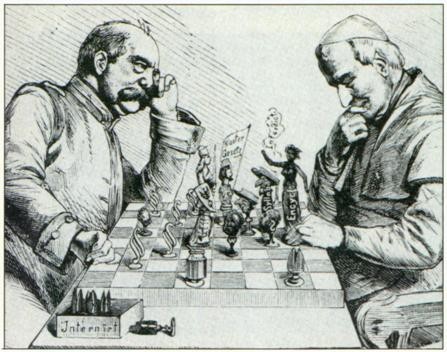
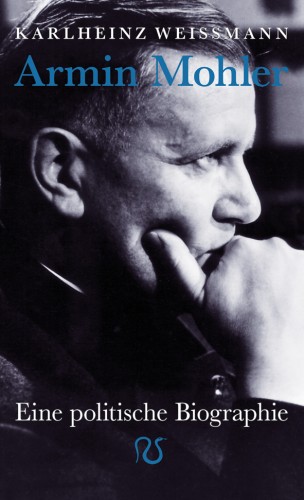
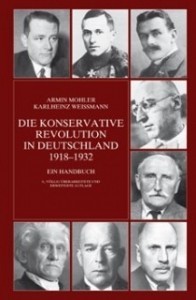 This writer was privileged to spend a day with Armin Mohler and his gracious wife at their home in Munich early in the summer of 1993. After having spoken earlier with historian Ernst Nolte, I was interested to compare his views with those of Mohler. In particular, I was curious to compare how each of these eminent figures in German intellectual life assessed the present and future climate of their nation, and of the continent within which it plays such a critical role.
This writer was privileged to spend a day with Armin Mohler and his gracious wife at their home in Munich early in the summer of 1993. After having spoken earlier with historian Ernst Nolte, I was interested to compare his views with those of Mohler. In particular, I was curious to compare how each of these eminent figures in German intellectual life assessed the present and future climate of their nation, and of the continent within which it plays such a critical role. 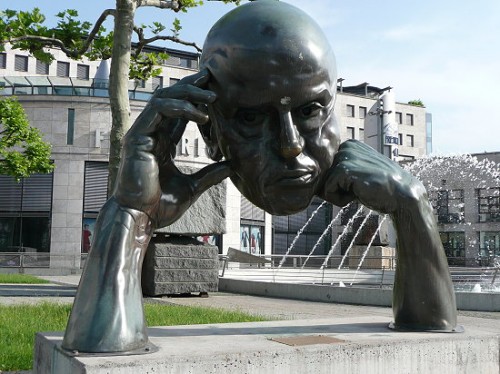
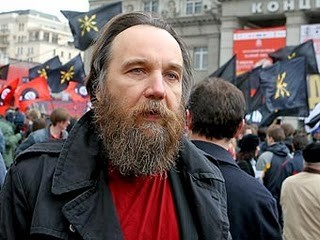




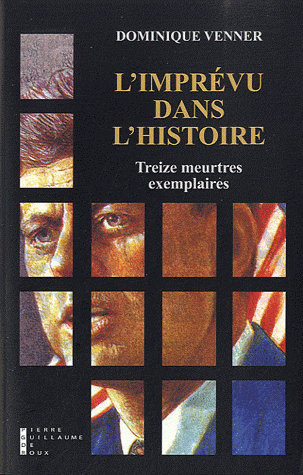 Dans son nouveau livre, Dominique Venner revient sur l’un de ses thèmes forts : l’imprévu dans l’histoire, à l’occasion de la réédition enrichie d’un ouvrage paru en 1988 et consacré au meurtre politique. Ce livre offre des récits vifs et ouvrent de vastes horizons à la réflexion.
Dans son nouveau livre, Dominique Venner revient sur l’un de ses thèmes forts : l’imprévu dans l’histoire, à l’occasion de la réédition enrichie d’un ouvrage paru en 1988 et consacré au meurtre politique. Ce livre offre des récits vifs et ouvrent de vastes horizons à la réflexion.